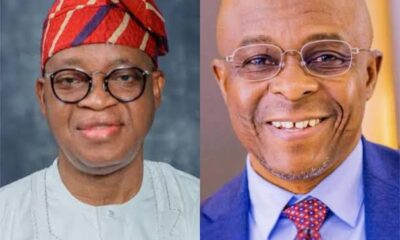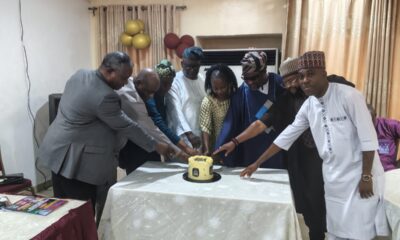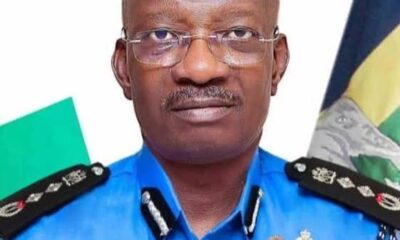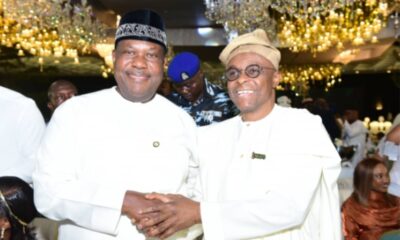Analysis
Nigerian Ports: All The Sides To Dantsoho’s Stewardship
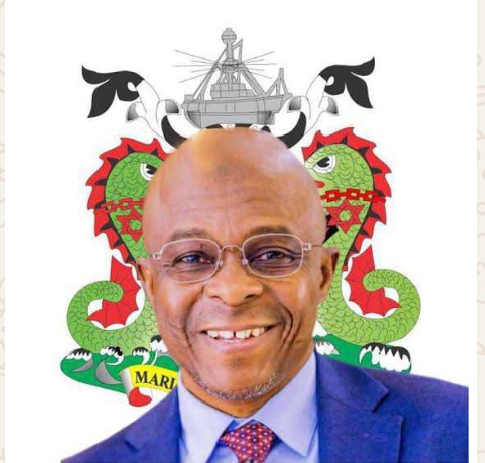
In the bustling corridors of the nation’s maritime economy, the Nigerian Ports Authority (NPA) stands as a cornerstone of trade, logistics, and national development.
Since his appointment on July 12, 2024, Dr. Abubakar Dantsoho has emerged as a visionary leader, steering the NPA into a new era of innovation, efficiency, and global competitiveness.
While it has not all been a bed of roses, this report by Eguono Odjegba highlights the essential issues and presents Dantsoho’s approach in consolidating on the strong systems and foundations he inherited, and the building of newer pillars, while leaving Nigerians to be the judge of his stewardship so far, under the present circumstances.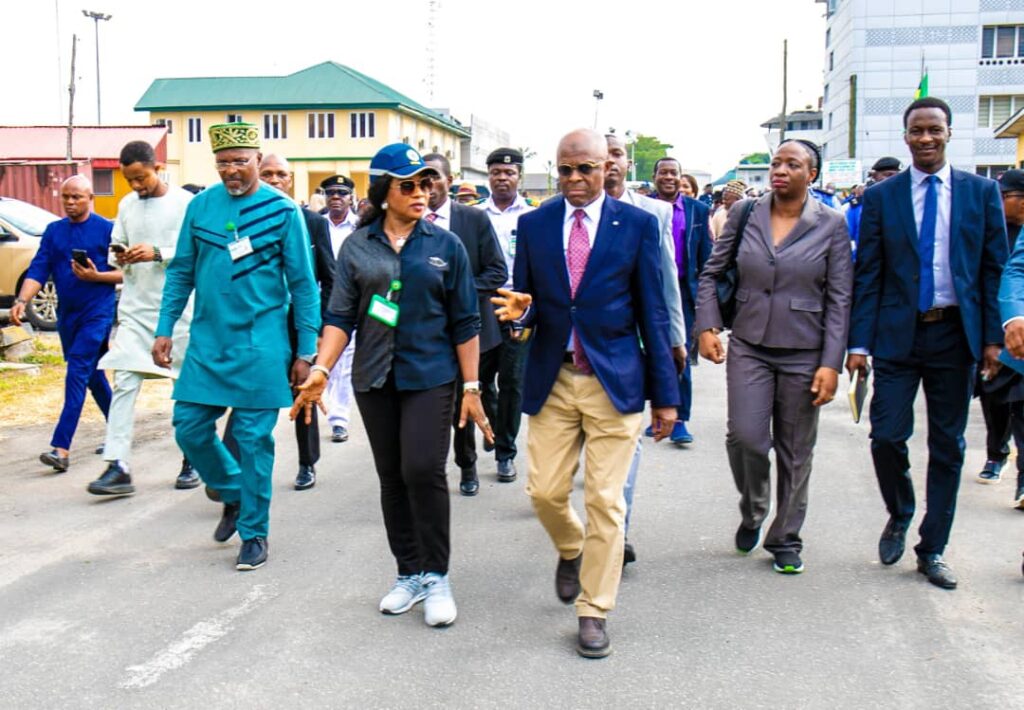
Perhaps we should start with the theory which l hope that no one would object to that the ports were in a number of ways challenged at the point Dantsoho came in. By and large these challenges were systemic and transferable, and hence were beyond any single leader or administration.
It is instructive therefore to appreciate the fact that building a responsive, functional maritime power house under the circumstances requires a strategic focus in sync with the economic philosophy of the political leadership. Having set the background, hopefully, one can say with a measure of fairness that the NPA has sharpened its focus on several transformative priorities under Dantsoho’s stewardship.
Port Modernization & Digital Transformation
Dr. Dantsoho assumed duty under a trying period when major ports infrastructure were clearly dilapidated, broken and overstretched. It was a time debates and commitments about major upgrades was the talk of the industry. In focus were the most affected ports like Tin Can, Apapa, Calabar and Warri, including channels deepening and infrastructure renewal to accommodate larger vessels. His coming also coincided with tough decisions regarding the deployment of the National Single Window, Port Community System (PCS), plus Vessel Traffic Management System (VTMS); all targeted at streamlining operations and reducing corruption. It was a reality of sad institutional cogitation and acceptance, but which nonetheless was still been pursued with a divided attention and wrong financing prognosis, rather unsure of which way to go.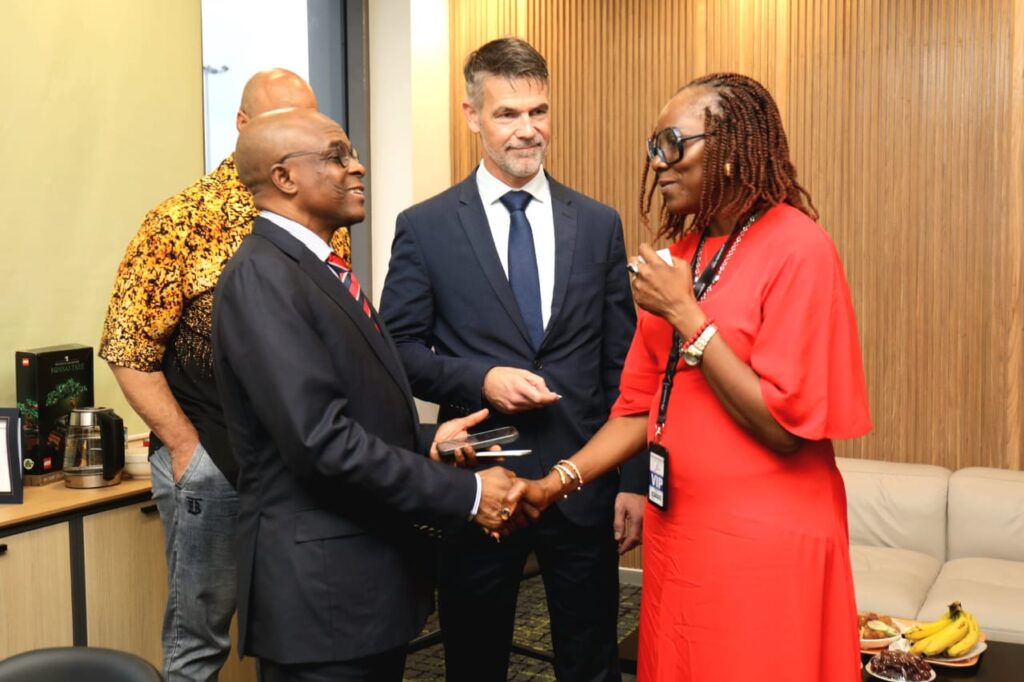
Revenue Expansion
For a long time already the revenue story of the NPA has been one of a mixed grill very often struggling under unfavourable atmosphere and tied as it were to unseen fetters; and been pulled left, right, front and back. The authority’s funding crisis often unspoken about publicly is not unconnected to budgetary gaps, legislative oversight servicing and misplaced priorities.
Despite the deplorable state of infrastructures and despite the urgency, the 2025 federal budget reveals a troubling trend with zero allocation the identified ports rehabilitation. A check on the budgetary spreadsheet revealed that no funds were earmarked for the reconstruction of Tin Can, Apapa, Onne, Warri, or Calabar ports.
Strategic Projects Budgetary Allocation
Above checks revealed minimal support for strategic projects which includes port modernization which received just ₦10 million, Cabotage Vessel Financing Fund -₦21.8 million, Inland dry ports (Ijebu-Ode, Moniya) -₦1.09 billion, and fish terminals and harbors -₦1.5 billion.
Yet, our policy and law makers allocated ₦90 million for ministry anniversaries, ₦333.6 million for vehicle purchases, and ₦2.2 million for office renovations. But let us hurry pass these unspeakable demonstration of craze in our body politics and leave the details for another day.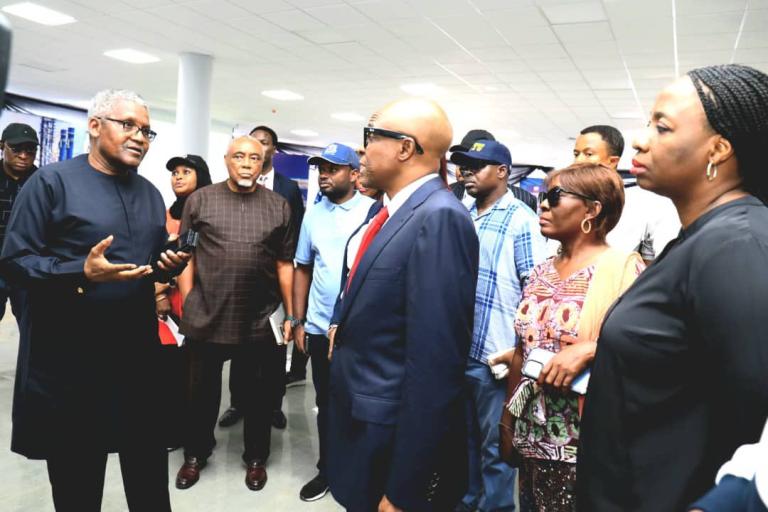
Quest To Fix The Ports
All his actions and desire so far aptly aggregate the philosophy ‘fix the ports, fix the economy.’ At multiple public forums, including the recent Nigerian Chamber of Shipping’s breakfast meeting, Dantsoho lamented the decades-long neglect of Nigeria’s ports, especially Tin Can Island and Apapa, which haven’t seen major upgrades in over 40 and 100 years, respectively.
He’s been vocal about how this neglect has allowed smaller countries like Togo, Côte d’Ivoire, and Ghana to outpace Nigeria in cargo volumes and transshipment traffic.
“Our competitors in Lome, Cotonou, Abidjan and Tema are only enjoying an advantage because we have not fixed our ports… This is the gap we must urgently close”, he says.
But rather than dwell on the past, Dantsoho has laid out a multi-pronged strategy to fix the bottlenecks. He’s championing a $1 billion rehabilitation plan to modernize key terminals, deepen channels, and restore quays across Lagos and Eastern ports.
Recognizing the equipment deficit, he’s investing in larger cranes, tugboats, and cargo-handling systems to accommodate bigger vessels, especially critical for operations like the Dangote Refinery. Dantsoho is repositioning Onne, Calabar, Warri, and Port Harcourt as competitive gateways, reducing dependence on Lagos and unlocking regional trade potential.
Dredging with Purpose
Since assuming office in July 2024, Dantsoho has taken decisive steps to improve the navigational artery of ports outside Lagos operation through purposeful dredging and strategic outcomes.
The result has since witnessed the revitalization of eastern ports and others adjoining the region. Dantsoho prioritized dredging and infrastructure upgrades at Onne, Calabar, Warri, and Port Harcourt ports to boost ship traffic and reduce pressure on Lagos.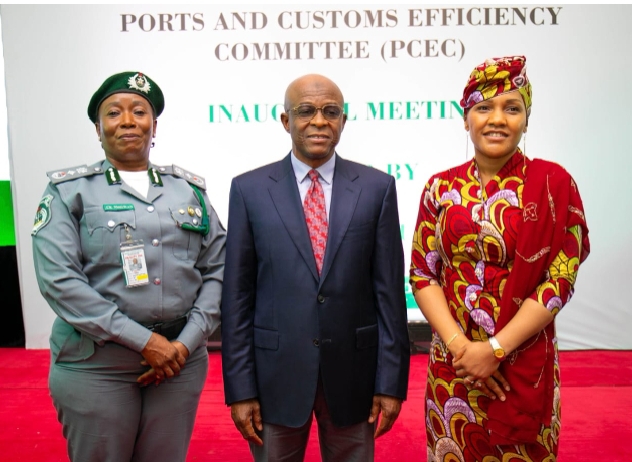
By improving access to these ports the NPA has metaphorically turned around the hand of the clock and is supporting the export of agricultural and mineral exports from South-South and North-Central regions. Enhanced channel access positions Nigeria to benefit from intra-African trade under the African Continental Free Trade Area regime.
Record shows that larger vessels have begun to berth safely at Eastern ports, with service boat Gross Registered Tonnage (GRT) rising 129.3% to 4.58 million tons in 2024. Available data indicate that export tonnage from Eastern ports has increased, with companies like Indorama reporting improved throughput.
In addition, the dredging reform is contributing to NPA’s projected ₦1.28 trillion revenue for 2025, up from ₦894.86 billion in 2024.
Achievements
Dr. Dantsoho’s tenure has been marked by bold reforms and measurable impact. Since coming onboard, pundits say operational efficiency has soared with ship turnaround time and cargo throughput enjoying significant improvement; thanks to strategic investments in equipment and workforce training. The ports revenue trajectory has performed no less as NPA’s revenue surged from ₦424.2 billion in 2023 to ₦893.6 billion in 2024, a staggering 111% rise.
Also note that the NPA has set an ambitious revenue target of ₦1.279 trillion for 2025 at a 40% leap from the ₦894 billion recorded in 2024. Take further note that last year, 2024, the NPA contributed ₦400 billion to the national treasury.
In slightly over a year in office, he has taken indigenous maritime development programme to an impressive level. In line with President Ahmed Bola Tinubu’s “Nigeria First” policy, the NPA under Dantsoho’s watch is actively promoting Nigerian-owned shipping ventures, including the historic berthing of the first wholly Nigerian-owned container vessel (MV Ocean Bragon) owned by Clarion Shipping West Africa, at Onne Port.The achievements are numerous and by no means limited to the above.
Export Facilitation: Irrespective of a few discordant tunes here and there, the creation of Export Processing Terminals (EPTs) has simplified export procedures, boosting non-oil trade and supporting economic diversification.
Continental Recognition: In November 2024, he became the first Nigerian elected Chairman of the Port Management Association of West and Central Africa (PMAWCA), elevating Nigeria’s influence in regional maritime governance.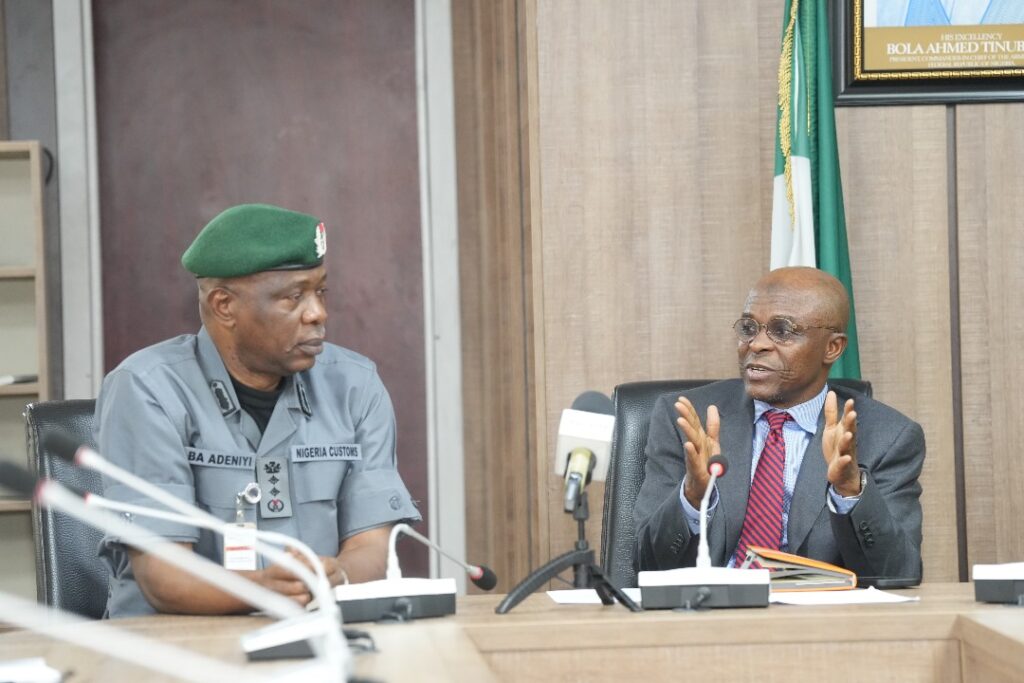
Employee Welfare Revolution: He resolved long-standing staff stagnation issues, approved overdue promotions, and enhanced productivity bonuses—earning praise from unions like MWUN and SSACGOC.
Fiscal Transparency: Despite federal revenue deductions, the NPA contributed a record ₦400 billion to the national treasury in 2024. It should be mentioned that Dantsoho is setting an uncommon record in deliberate reforms and capacity building compared to the troubling track records of previous dredging. Between 2018 and 2023, NPA’s dredging efforts were marred majorly by failed contracts. Multiple dredging contracts including the Calabar and Warri ports were awarded but never fully executed, despite billions of naira spent.
Insider Expertise
Perhaps, his greatest asset and what sets Dantsoho apart is his insider knowledge. With over 30 years at NPA, Dantsoho rose from the rank of a Corp member to the position of the managing director, giving him unmatched institutional insight. There is no gainsaying that his PhD in maritime technology and global exposure informed his data-driven, reformist mindset.
Recognition
He’s the first Nigerian elected Chairman of the Port Management Association of West and Central Africa (PMAWCA), amplifying Nigeria’s regional influence. In short, while past administrations laid some groundwork, Dantsoho is executing a bold, integrated reform agenda that’s reshaping Nigeria’s maritime future from the inside out.
Charting the Course Ahead
From the above, it is evident that Dr. Dantsoho’s leadership is not just about numbers but about redefining Nigeria’s maritime identity. His commitment to infrastructure, technology, and human capital is positioning the NPA as a catalyst for national prosperity.
As global trade dynamics evolve, the NPA under his watch is ensuring that Nigeria remains not just relevant but also dominant in West Africa’s maritime landscape.



